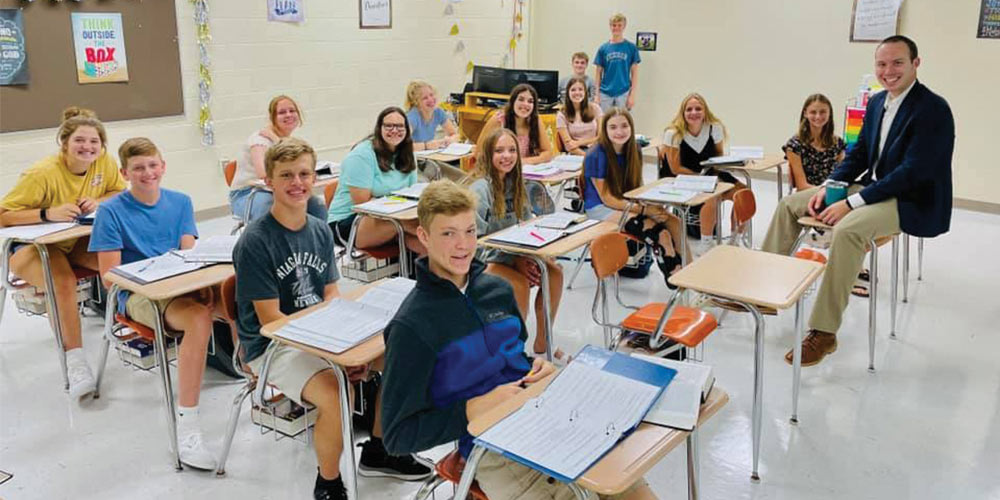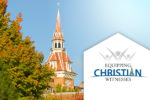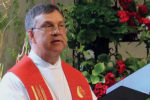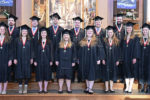 |
The Conference of Presidents has created a task force to examine the current and potential future teacher shortage. The task force consists of leaders from WELS schools, Martin Luther College, the Commission on Lutheran Schools, the Board for Ministerial Education, and the Conference of Presidents. WELS isn’t alone in experiencing teacher shortages. Public and private schools all over the country are looking for quality teachers after the pandemic and teacher burnout exacerbated an already looming shortage.
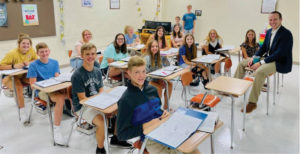
For WELS, the vacancies in our classrooms are coming at a time when enrollment in WELS schools is growing—it was up 9.8 percent in the 2021–22 school year. And while enrollment numbers for the 2022–23 school year aren’t available yet, James Rademan, director of WELS Lutheran Schools, says he expects them to climb again.
Much of that growth is from students whose families are not members of our congregations. “We’re in a world that more and more sees the need for the Christian education that our schools offer. People are knocking on our doors,” he says. “The Conference of Presidents, the Commission on Lutheran Schools, WELS leadership, and the schools themselves are all seeking ways to address the shortage so we can continue to serve our students and their families.”
According to Rademan, who serves as the task force’s chairman, the group is researching many issues, including retention of existing teachers, recruitment of new teachers, and alternative methods for training teachers.
Retention
The Commission on Lutheran Schools has a number of programs in place to help and support new teachers in their calls, including mentoring partnerships and new teacher induction. To provide for leadership positions in our schools, programs offer training to equip veteran teachers with what they need to serve as principals or early childhood ministry directors.
“But is there more support that we can give our teachers to focus on retention?” says Rademan. The task force is looking at a number of different things, including compensation and strategies for managing realistic work weeks. It is also surveying schools to discover best practices for teacher retention that can be incorporated throughout the synod.
Recruitment
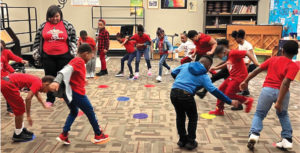
Since the pandemic started in 2020, enrollment at Martin Luther College (MLC), WELS’ College of Ministry, has declined—from 731 in the fall of 2019 to 661 in the fall of 2021. At the same time, WELS needs more teachers to fill its classrooms. MLC has released a new strategic plan called “Pursuing Excellence Under the Cross” that not only looks at training current students but also examines how to enroll more students for the future. The plan focuses on how to boost financial aid, establish more scholarships, and enhance and expand the campus.
“Clearly, our synod needs more people to study for gospel ministry. Clearly, MLC needs to offer an excellent college experience at an affordable price,” says Richard Gurgel, MLC president, in discussing the strategic plan. “Under God’s blessing, this plan could enable this to happen. We are pursuing excellence under the cross. It’s a task with eternal importance.”

Partnerships are important in the recruitment process. MLC works with WELS preparatory schools and high schools as well as congregations to recruit potential future called workers; the prep schools work closely with the Lutheran elementary schools. But schools aren’t the only place where encouragement to consider the public ministry can happen. Don Patterson, president of the South Central District, is heading a task force committee that is looking at teacher recruitment and retention within our WELS culture. He says the committee is studying issues such as how to help every pastor, teacher, and church leader do a better and more consistent job at recruitment. The committee is interviewing churches and schools that have a higher rate of students attending MLC in the teacher track so it can develop suggestions for best practices.
The committee also is looking at how to find more teachers who are not serving in a WELS school who are interested in getting certified to teach in a WELS school. “How do we find people to get involved in ministry as we see it today, and how is MLC going to be a major partner in that?” says Patterson.
Alternative methods for training teachers
In the past, recruitment has been focused on encouraging high school students to become lifelong ministers of the gospel. But “the traditional funnel is never going to meet the needs of our synod right now,” says John Meyer, MLC’s director of graduate studies and continuing education.
In the meantime, another group of people who are interested in serving as full-time called workers has emerged. These non-traditional students may want to pursue ministry as a second career or may be part of an urban people group. Moving to New Ulm to study full time for the ministry may not be feasible—or advisable—for these non-traditional candidates. “We want to create an alternative pathway [into ministry],” says Meyer.
That alternative pathway uses Competency-Based Education. This education method is an online option that awards degrees based on proven competence instead of credit hours, taking into account students’ past experiences and previous job skills. Meyer is quick to stress that this program is not meant to take anyone out of the traditional four-year college experience on campus but to provide a way to train additional called workers. In a survey MLC conducted with WELS pastors in 2019, they learned there could be up to 600 second-career candidates and 33 urban minority candidates who would consider becoming a WELS teacher through a program like this.
“We think in the long run, this will help us to serve the greatest variety of people and provide the greatest amount of flexibility to meet their needs,” says Meyer.
This, however, is not an immediate fix to WELS’ shortage of teachers. It will take at least two years to put the personnel in place, develop coursework, make the necessary infrastructure adjustments, and secure the needed approvals for accreditation and licensing before students can enroll.
The task force is taking all this into account as it continues its study of the current and future teacher shortages WELS is facing. It plans to give its first report to the Conference of Presidents in October.
Learn more about MLC’s new strategic plan.
Author: Forward in Christ
Volume: 109, Number 09
Issue: September 2022

